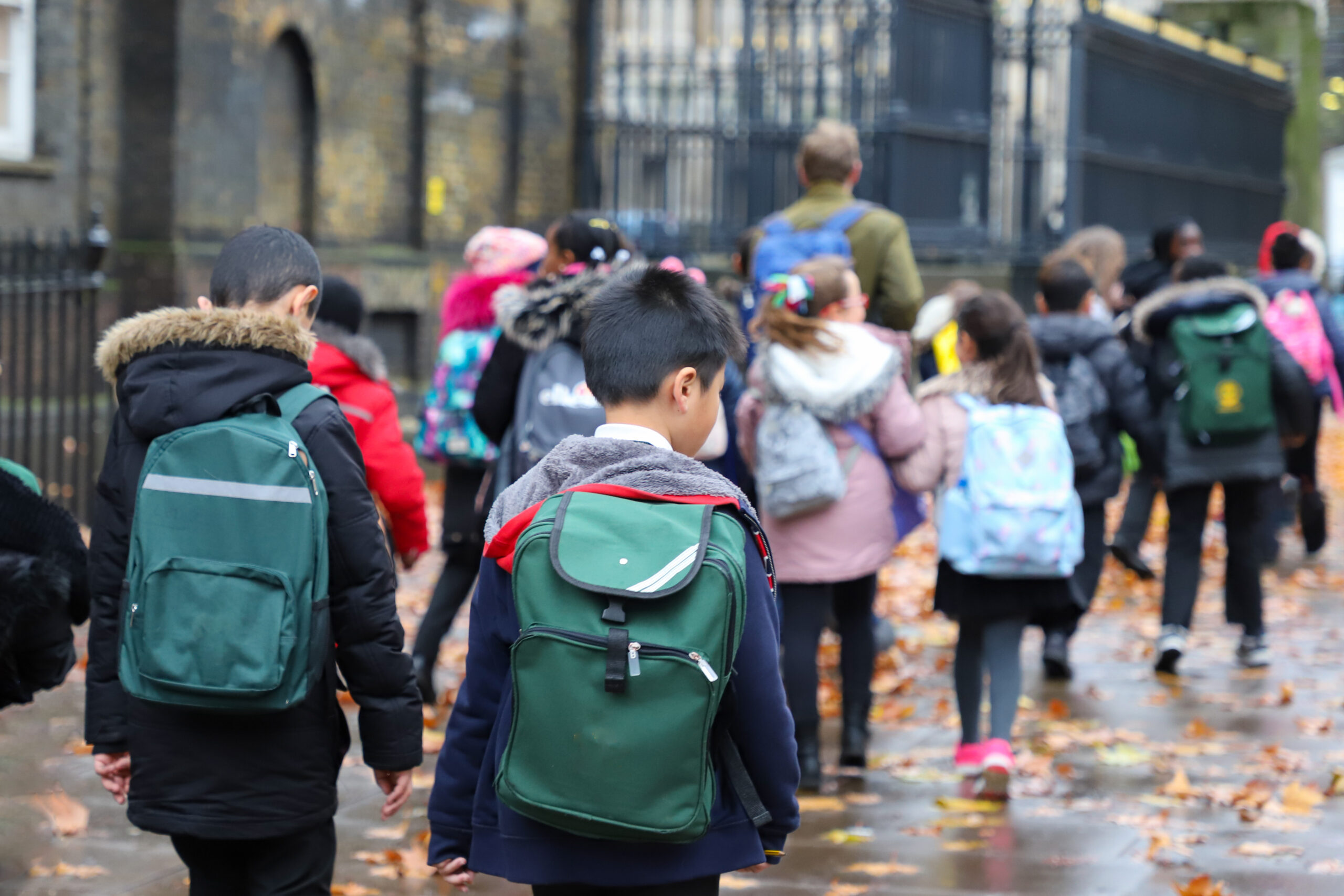
AdobeStock by James Jiao
<h2><span data-contrast="auto">A new report from the Education Review Office (ERO) has found that although students from ethnic communities – African, Asian, Latin American and Middle Eastern – achieve highly in schools, racism is still a widespread issue in our school communities. </span><span data-ccp-props="{";201341983";:0,";335559739";:160,";335559740";:259}"> </span><span data-ccp-props="{";201341983";:0,";335559739";:160,";335559740";:259}"> </span></h2>
<p><span data-contrast="auto">Learners from ethnic communities are more likely to achieve well in NCEA and go onto tertiary education. However, these same learners encounter racism and isolation, and may not have their cultural needs met in our education system. </span><span data-ccp-props="{";201341983";:0,";335559739";:160,";335559740";:259}"> </span></p>
<p><b>Read the Term 1 edition of <i>School News</i> <a href="https://www.schoolnews.co.nz/latest-print-issue/" target="_blank" rel="noopener noreferrer" data-auth="NotApplicable" data-safelink="true" data-linkindex="0">HERE.</a></b></p>
<p><span data-contrast="auto">The report, titled “Education For All Our Children: Embracing Diverse Ethnicities”, found that in just 20 years, a quarter of Aotearoa New Zealand’s ākonga will be from an ethnic community. In Auckland, 2 out of 5 learners will be of Asian descent. </span><span data-contrast="auto">More than two thirds of learners from ethnic communities are born in New Zealand. Many identify with multiple ethnicities, and more than half are multilingual. </span></p>
<p><span data-contrast="auto">One in five learners, or 20% of learners from ethnic communities have experienced racist bullying in the last four weeks, and over half have witnessed bullying which targets an individual’s ethnicity. Both learners and their whānau believe racist bullying needs to be better identified and addressed in schools. Almost a third of ākonga from an ethnic community do not believe their school takes racial bullying seriously. </span><span data-ccp-props="{";201341983";:0,";335559739";:160,";335559740";:259}"> </span></p>
<figure id="attachment_25633" aria-describedby="caption-attachment-25633" style="width: 2560px" class="wp-caption alignnone"><img class="size-full wp-image-25633" src="https://www.schoolnews.co.nz/wp-content/uploads/2023/03/linkedin-sales-solutions-jJFrkJP_-RA-unsplash-1-scaled.jpg" alt="" width="2560" height="1707" /><figcaption id="caption-attachment-25633" class="wp-caption-text">MELAA students report particularly low wellbeing. Photo: LinkedIn Sales Solutions on Unsplash</figcaption></figure>
<p><span data-contrast="auto">Ākonga have reported that their wellbeing is affected by racism in school environments. Almost 20% of learners said they do not belong at school, and a third say they feel lonely at school. Almost 20% of learners said they felt they needed to hide their ethnic identity, or else felt excluded for their ethnic identity. Middle Eastern, Latin American or African (MELAA) <a href="https://www.schoolnews.co.nz/2023/10/student-wellbeing-in-education-a-new-report-from-moe/" target="_blank">students report particularly low wellbeing</a>. </span><span data-ccp-props="{";201341983";:0,";335559739";:160,";335559740";:259}"> </span></p>
<p><span data-contrast="auto">Ākonga also face racialisation from teachers or schools themselves. More than a quarter of secondary students from ethnic communities reported that teachers’ course recommendations were influenced by ethnicity. This was supported by a further finding that teachers’ understanding of diverse cultures isn’t keeping up with our changing population. Ethnic communities are also poorly represented in the teaching workforce; one example is that only 5% of teachers are Asian. Over half of teachers report that they aren’t confident about connecting with ethnic communities.</span><span data-ccp-props="{";201341983";:0,";335559739";:160,";335559740";:259}"> </span></p>
<p><span data-contrast="auto">Zooming out, whānau from ethnic communities report that they find information about their child’s learning “insufficient or confusing”, and they are poorly represented on School Boards. As an example, Asian parents only make up 2% of parents on School Boards. </span><span data-ccp-props="{";201341983";:0,";335559739";:160,";335559740";:259}"> </span></p>
<p><span data-contrast="auto">The report presented five concluding focuses for the future. Firstly, racism needs to be addressed in schools. Secondly, the curriculum needs to be adapted for ethnic communities’ needs, including what is taught, how it’s taught, where it’s taught and who is teaching. Ethnic communities also need to be better represented, and their progress better monitored. </span><span data-ccp-props="{";201341983";:0,";335559739";:160,";335559740";:259}"> </span></p>
<p><span data-contrast="auto">Ruth Shinoda, head of the ERO’s Education Evaluation centre, said the findings were “really concerning&#8230; We must do better – every school needs to be able to prevent and tackle racism.</span><span data-ccp-props="{";201341983";:0,";335559739";:160,";335559740";:259}"> </span></p>
<blockquote>
<p><span data-contrast="auto">“Learners from ethnic communities should have a strong say in the education they recieve so not only can they continue to achieve in education but also thrive at school,” said Shinoda. </span><span data-ccp-props="{";201341983";:0,";335559739";:160,";335559740";:259}"> </span></p>
</blockquote>
<p><span data-contrast="auto">The full report can be found </span><a href="https://ero.govt.nz/our-research/education-for-all-our-children-embracing-diverse-ethnicities" target="_blank"><span data-contrast="none">on the ERO website.</span></a><span data-contrast="auto"> </span><span data-ccp-props="{";201341983";:0,";335559739";:160,";335559740";:259}"> </span></p>

NZEI Te Riu Roa is considering legal action against the government for the disestablishment of…
NZQA is implementing AI-marking for all Year 10 written assessments from this year onwards, following…
Teaching personal financial responsibility isn't enough. Children should be taught broader economic context, argue New…
When students can't hear the teacher, they can't learn properly. Sound quality matters in education…
The Garden City is rich with learning opportunities, no matter what subject or part of…
Teaching Council of Aotearoa launch school leaders’ stories project with Unteach Racism to challenge institutional…
This website uses cookies.